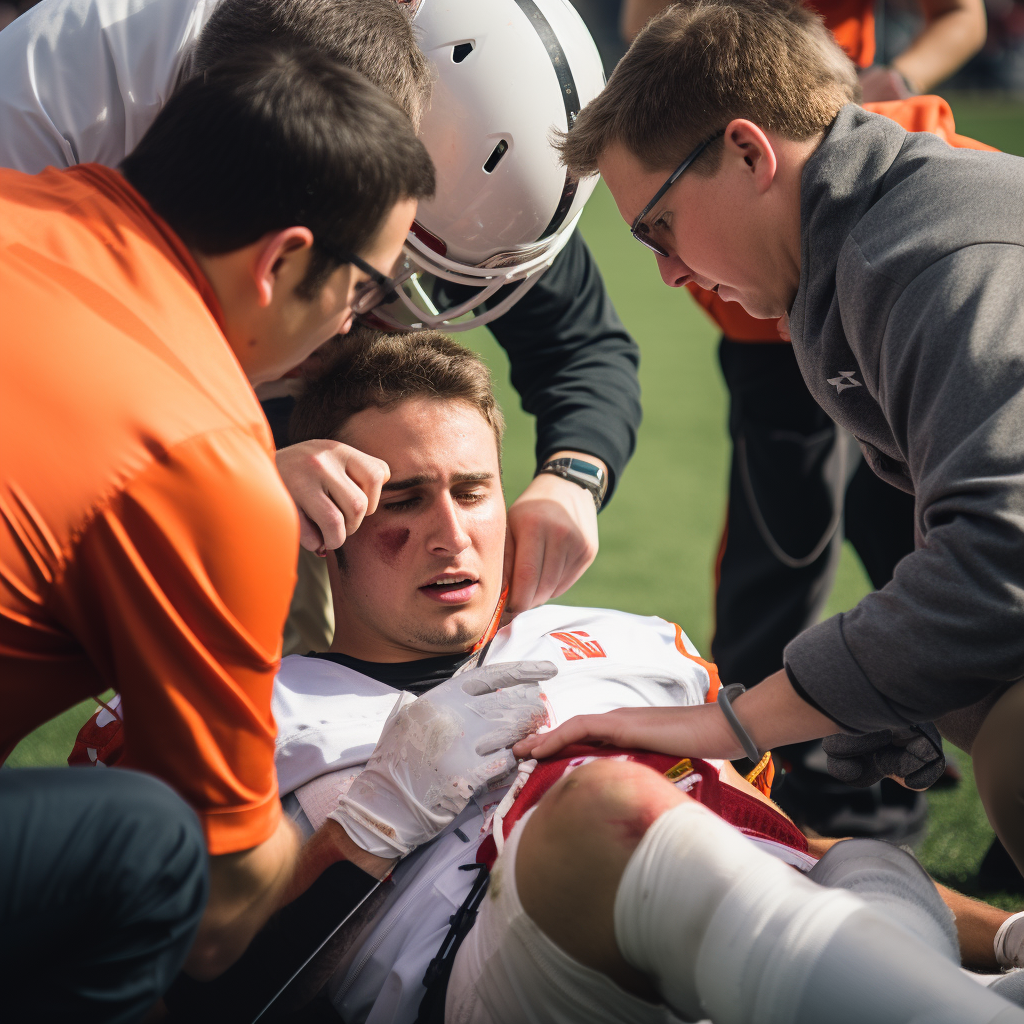College football is a very lucrative sport in the United States, generating billions of dollars in revenue for the NCAA, conferences, and schools. However, the players who put their bodies on the line for the game often do not receive adequate compensation or protection for their long-term health.
Recently, a new rule change has allowed college athletes to profit from their name, image, and likeness (NIL), meaning they can sign endorsement deals, sell merchandise, and participate in other business ventures without losing their eligibility. This is a significant step forward for the rights and opportunities of college athletes, but it also creates a new challenge: how to ensure that all players, not just the stars, benefit from the wealth generated by college football.
One possible solution is to create a health care fund for former college football players, funded by a tax on the NIL earnings of current players. This fund would provide medical coverage and assistance for the players who suffer from the health risks and consequences of playing college football, such as brain damage, mental disorders, joint problems, heart conditions, and chronic pain.
The need for such a fund is evident, considering the high rates of injury and disability among former college football players. According to a study by Harvard University, more than 40% of former college football players reported having chronic injuries from their playing days, and more than 50% reported having joint problems. Another study found that college football players have a 20% higher risk of developing Alzheimer’s or dementia than the general population.
The current health insurance and benefits system for college athletes is inadequate and inconsistent. While the NCAA requires schools to provide medical care for injuries that occur during athletic activities, the coverage varies by school and conference, and often does not cover the full cost of treatment or the long-term effects of injuries. Furthermore, the NCAA does not provide any health insurance or benefits for former players, leaving them to fend for themselves or rely on public programs like Medicaid or Medicare.
A health care fund for former college football players would address these gaps and inequities, and provide a safety net for the players who sacrifice their health for the sport. It would also be a fair and reasonable way to distribute the wealth generated by college football, as the players who earn the most from their NIL would contribute the most to the fund, while the players who earn the least or nothing at all would benefit the most from the fund. The fund would also create an incentive for players to use their NIL wisely and responsibly, as they would have to pay a portion of their income to the fund.
The exact details of how the fund would work, such as the tax rate, the eligibility criteria, the benefits offered, and the administration and oversight of the fund, would have to be determined by the stakeholders involved, such as the NCAA, the schools, the conferences, the players, and the medical experts. However, the basic principle of the fund is simple and compelling: college football players deserve to have access to quality health care, both during and after their playing careers, and the players who make the most money from the sport should help pay for it.





